What HR Needs to Know About Generative AI
Since Generative AI burst onto the scene, we’ve been deeply engaged in understanding its impact on our business, our people, and the wider HR industry. The rapid adoption of this technology necessitates that we, as HR professionals, and the broader business community, are well-prepared to embrace the changes it brings. Successfully navigating this change starts with having the right mindset.
Generative AI Means Efficiency, Not Layoffs
A common reaction among HR professionals to generative AI is fear—fear of the unknown, fear of job displacement, and fear of losing the human element in HR. While it’s natural to fear the unknown, we encourage HR and business leaders to adopt a growth mindset and see AI as a tool for enhancing efficiency rather than a cause for layoffs.
The first step is to demystify the stereotype that AI will lead to massive job losses. Leaders are more likely to focus on increasing employee productivity rather than reducing headcount when there are opportunities for cost savings. Most leaders aim to leverage technology to improve efficiency, especially in terms of time, our most valuable commodity. AI can handle mundane tasks like scheduling meetings, writing emails, submitting expense reports, and daily administration. Freeing up time from these tasks allows us to focus on team building, leadership, cross-functional collaboration, relationship building, mentoring, and creative problem-solving, which can drive business, team, and culture growth.
Tangible Focus Areas for HR and Business Leaders
Let’s discuss the tangible focus areas that HR and business leaders should prioritize in preparation for AI. These areas are not new; they are the core responsibilities of HR leaders, only now with an AI twist.
Leadership Development Preparation
Leaders and managers need to be ready for increased employee productivity. This means they must spend more time ensuring this productivity aligns with the business’s strategic direction. Managers will need to focus more on being role models, fostering trust, promoting diversity and inclusion, and creating a respectful, healthy, and safe environment to encourage collaboration and innovation. As AI frees up employees’ time, managers must guide them on using that time productively.
Fostering a Culture of Learning and Growth
The integration of AI will require employees to learn new skills. However, before jumping to skill acquisition, it’s essential to foster a culture of learning. At Mosaic, growth is our mantra, and we expect employees to take control of their development and reach their full potential. The focus isn’t on promotions or titles but on providing employees with the skills, knowledge, and tools to improve their craft. When employees are encouraged to develop their passions and enhance their skills, their careers become more than just vertical growth; they become purpose-driven engagements. This strategy works when employees move internally across different roles and business verticals.
Getting Comfortable with Change Management
People naturally resist change, even HR leaders trained to embrace and cultivate it. With the rapid growth of AI, change is inevitable, so we need to sharpen our change management skills. This includes improving communication, increasing transparency, and building trust within our organizations. These processes require time and human connection—something AI can never replace.
Empathy, Vulnerability, and Compassion
A guiding question for us as HR leaders is: how can we embrace and use AI to be more human in our roles? While AI can perform many tasks, it cannot replicate empathy, vulnerability, and compassion—qualities that define great managers and leaders. We should use AI to handle repetitive tasks, freeing us to engage more with our employees, understand their motivations, and support their development.
Conclusion
Generative AI offers incredible potential to enhance efficiency and productivity within our organizations. By embracing this technology with a growth mindset, focusing on leadership development, fostering a culture of learning, managing change effectively, and emphasizing human connection, we can leverage AI to improve our business and support our people better. At Mosaic, we believe that understanding and integrating AI into our HR practices will help us build a more dynamic, engaged, and innovative workforce. Let’s use AI to handle the mundane and free ourselves to focus on what truly matters—our people.




